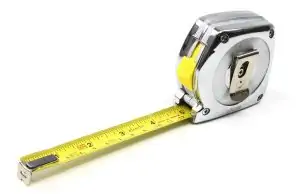Higher English Help
Useful tips for your english revision., critical essay.

As part of your exam, you’ll have to write two critical essays. Each is worth twenty-five marks, and you get one and a half hours in total, or forty-five minutes each. That’s not a long time. The secret to writing a good essay in this time is planning.
The best way to write an essay at Higher level is to approach it ‘thematically’. This means that the key themes in the text should form the basis of your paragraphs. This will help you to analyse the text, rather than just describing it. Think about it this way – if someone asked you to explain why one football team beat another, and you simply explained what happened on a minute-by-minute basis, that wouldn’t be a very good answer. Instead, if you explained key aspects in which Team A was better than Team B, you would be more concise and give a better answer. That is the thematic approach.
So, when you come to plan your essay, you should aim to write three or four body paragraphs (not including the introduction and conclusion) that are each based around relevant themes. As part of your revision, you should make a ‘spider chart’ of key themes in the text, which you can then apply to the question.There are probably five or six key themes of each text (have a look at the ‘Help with Texts’) section to help you identify the key themes.
To give you an example, in 2012, one of the questions said:

If you were answering using “Dr. Jekyll and Mr. Hyde” as your text, your three key themes might be: 1) The battle between good and evil in humans; 2) Addiction and the loss of control; 3) The contrast between Science and Morality.
Each of these paragraphs will allow you to explore different themes within the text, which means you can focus on analysis of the story, rather than simply describing what’s going on.
The ‘critical’ aspect of a critical essay is the analysis. You should be able to say why the author chose a particular word, event or character. Thinking about the message behind the text is a good place to start. Also, have a look at the author’s biography. Usually their own life experiences influence their writing. For example, Arthur Miller wrote “The Crucible” as a direct allegory of his own experiences of the Communist ‘witchhunts’ of 1950s America.
When it comes to writing your essays in the exam, the best way to divide your time is as follows:
10 minutes planning,
30 minutes writing (6 minutes per paragraph),
5 minutes checking your work.
Obviously, this doesn’t give you a lot of time to actually write your paragraphs. This will force you to be straight to the point (if you are someone who waffles, then the short writing time is a blessing in disguise). Keep your sentences short when you are writing. This will help you to be direct, and to keep you focused on the question at hand. Try reading past essays out loud to yourself, and seeing where the sentences are too long.

You can keep your topic sentences in particular very short. In fact, it’s best to make them straight to the point. Using the “Jekyll and Hyde” example above, the topic sentence for the first paragraph could be: “The battle between Jekyll and Hyde is symbolic of the battle between good and evil in humans.” This is direct, and shows the reader exactly what you will talk about in the paragraph.
Make sure that you finish each paragraph with a one sentence mini-conclusion that links back to the question. Usually the question is split into two, and the finish of the sentence should refer to the second part of the question. So, using the “Jekyll and Hyde” example, the final sentence of the first paragraph could be: “Jekyll’s growing realisation that he cannot control Hyde forces him to isolate himself, and shows that Jekyll has come to regret his earlier immoral decisions.” Writing a one sentence mini-conclusion will help you when it comes to writing your final conclusions, and will also keep your work focused on the question.
In your paragraphs, the best sentence structure is the P.E.A. approach. This stands for Point, Evidence, and Analysis. Make your point, then back it up with a quotation or an example from the text, and then explain why this is important or relevant to the question. You can practice this simple approach by using the following framework in your revision:
Point – One of the key themes in the text is…
Evidence – This is shown when…
Analysis – This highlights/emphasises….
Although it is best not to use these exact phrases every time, this does give you an idea of how you should approach the content of your paragraphs.
The Introduction

The format of your introduction should be:
1) A synoptic statement about the text (i.e. explaining when it was written, who wrote it, and a one sentence summary of the plot).
2) An explanation of the relevance of the question to the text. For example, using the sample question above, you should say why Dr. Jekyll is good to talk about as to a character who has a changing view of himself.
3) Identify the key themes of the text. In reality, this is you explaining what your paragraphs are going to be. Instead of saying “In this essay I will talk about…”, say “The most important themes are…” and then mention what your paragraphs will be. Be confident in what you are writing!
4) Try and draw your themes together into one ‘mega theme’. This will be the final sentence of your introduction, and so should be short and snappy (to get the reader’s attention). There should be an underlying point that links all of your themes together. For example, using the “Dr. Jekyll and Mr. Hyde” question above, the three paragraphs are all linked by the idea of man’s internal conflict, and the ongoing battle between being ethical and fulfilling desires. This would be the ‘mega theme’.
The Conclusion
Conclusions are really very simple, although a number of students don’t even write one. If you’ve planned your time properly, then you will have time to conclude your argument. Not only is this critical for getting good marks for structuring, but it will allow you to actually answer the question. The format of the conclusion should be:
1) Spend one sentence summing up each of the paragraphs you wrote. The mini-conclusions you wrote will help with this.
2) Draw these all together again using your mega theme.
3) Your final sentence of the entire essay should give a direct answer to the question. Look at how the question is worded and use that to help you phrase your answer. Think about the final sentence as a one-sentence ‘in a nutshell’ answer. An examiner should be able to read just your last sentence to get a sense of what you are arguing. For the “Jekyll and Hyde” example, the final sentence could be: “Ultimately, Jekyll’s changing relationship with Hyde is an allegory for man’s internal conflict, and Stevenson’s belief in man’s capacity for both good and evil.”
Lessons to take away
Work on a ‘spider diagram’ of the key themes in your texts.
Keep your sentences short/read practice essays out loud to yourself.
Remember P.E.A.
Practice writing 10 minute plans.

Share this:
Leave a comment cancel reply.

- Already have a WordPress.com account? Log in now.
- Subscribe Subscribed
- Copy shortlink
- Report this content
- View post in Reader
- Manage subscriptions
- Collapse this bar
- Link to facebook
- Link to linkedin
- Link to twitter
- Link to youtube
- Writing Tips
The Word Limit in Academic Writing (and How to Stick to It)
- 3-minute read
- 24th September 2016
Even the phrase “word limit” can cause panic among students . For some it’s the challenge of writing enough, while others find it hard to stick within the limit given. In either case, it can lead to spending more time worrying about the length of your paper than the content!

But why do college papers come with set word limits? And what should you do to ensure you don’t write too much or too little?
Why Have a Word Limit?
There are two main reasons that academic papers usually come with a word limit:
- Fairness It’s impossible to grade two papers of vastly different lengths (e.g., 20,000 compared to 2,000 words) on the same scale. The word limit makes sure that everyone taking the same class knows what is expected of them.
- Communication Skills As well as testing your knowledge, college papers are about communicating clearly and concisely. Setting a word limit forces you to consider what you’re saying more carefully, helping you to develop your writing skills.
Sticking to the word limit is, therefore, part of being a good academic, since being a long way over or under could suggest you’ve misjudged the scope of the essay topic or that you’re having trouble communicating your ideas.
How to Stick to the Word Limit
Although many colleges give you roughly 10% leeway on the word limit, you should aim for your finished paper to be as close to the suggested word count as possible. If you find yourself writing too much, you can reduce the word count by:
Find this useful?
Subscribe to our newsletter and get writing tips from our editors straight to your inbox.
- Editing out repetition, redundant words and padding phrases
- Cutting down long or unnecessary quotations
- Reducing the number of examples or case studies used (if you’ve included several)
- Using the active voice instead of the passive voice
More generally, you should re-read your work and eliminate anything that isn’t directly related to the question you’re answering. As well as helping you stick to the word limit, this will make your work more focused, which could boost your grades.
How to Increase Your Word Count
If you’re struggling to write enough, the temptation might be to add padding phrases like “in my opinion” or long block quotations until you hit the minimum word count. But this will simply detract from the clarity of your writing.
Instead, the answer is usually to go back over your work and look for things that could be improved with a little additional attention. This might involve:
- Addressing anything from your essay question that you’ve overlooked
- Adding illustrative examples to support a point
- Considering different sources and views on the same issue
- Using short quotations as evidence for your arguments
Moreover, whether you’ve written too much or too little, getting someone else to read your work and offer feedback is a fantastic idea (especially if you ask a professional for help). This will help you to identify areas that could be expanded or cut in the next draft, so eventually you should be able to get your essay to the required length.
Share this article:
Post A New Comment
Got content that needs a quick turnaround? Let us polish your work. Explore our editorial business services.
5-minute read
Free Email Newsletter Template (2024)
Promoting a brand means sharing valuable insights to connect more deeply with your audience, and...
6-minute read
How to Write a Nonprofit Grant Proposal
If you’re seeking funding to support your charitable endeavors as a nonprofit organization, you’ll need...
9-minute read
How to Use Infographics to Boost Your Presentation
Is your content getting noticed? Capturing and maintaining an audience’s attention is a challenge when...
8-minute read
Why Interactive PDFs Are Better for Engagement
Are you looking to enhance engagement and captivate your audience through your professional documents? Interactive...
7-minute read
Seven Key Strategies for Voice Search Optimization
Voice search optimization is rapidly shaping the digital landscape, requiring content professionals to adapt their...
4-minute read
Five Creative Ways to Showcase Your Digital Portfolio
Are you a creative freelancer looking to make a lasting impression on potential clients or...

Make sure your writing is the best it can be with our expert English proofreading and editing.
PLEASE HELP!! Higher English - Folio - Word Count
Quick reply, related discussions.
- Nat 5 english folio help!!!
- Changes to English Folio 2024-2025 (Nat 5, Higher, Adv Higher)
- Doing poetry for Higher english folio?
- Does the SQA punish self plagiarism?
- Higher English folio mark
- Higher English Folio Essay
- Submitting the same folio for Higher?
- Worried as hell results
- Calling All Scottish Students!!
- Tips for a new S5
- Choosing Advanced Highers
- which advanced higher ??
- Higher English
- SQA higher english
- CfE Higher English 2017/18
- How do you get a higher mark in a higher English critical essay?
- Folio - Higher English
- SQA Highers
- help what highers do i take
Last reply 1 week ago
Last reply 2 weeks ago
Last reply 3 weeks ago
Last reply 4 weeks ago
Last reply 2 months ago
Last reply 3 months ago

Articles for you

Bmat: when it is, what it costs and how to prepare

Finding a university place in Ucas Clearing 2024: 10 top tips to help you get ready
Top 10 tips for Ucas Clearing 2024

Bringing business people into the classroom: what students learn from industry professionals
- Past papers
- National Qualifications > Subjects > English > Advanced Higher > Advanced Higher English
Advanced Higher English
Updates and announcements, change to conditions of assessment in english portfolios from session 2024-25 (28/05/24).
We’re tightening the conditions of assessment in National 5, Higher and Advanced Higher English writing portfolios from session 2024-25.
What’s changing:
There will be a new mandatory requirement for learners to complete their first draft during class time, under the supervision of the teacher or lecturer.
This will enable teachers and lecturers to review learners’ first drafts before learners continue to work on them independently. Learners will then complete their final piece under some supervision and control, as is currently the case.
We aren’t making any other changes to the writing portfolios. The assessment standards remain the same.
Why we’re making this change:
We’ve been receiving ongoing feedback from the English teaching profession that, under the current assessment conditions, it can be difficult to verify that learners’ work is their own, as it’s possible they may have had input from others when working on their draft outside of school or college hours.
This change will further support teachers and lecturers with authenticating learners’ work in the writing portfolio. It will allow them to observe how learners’ work is developing without any outside influences. This will help them to identify if there are any unusual changes in the quality and content of a learner’s writing portfolio at the final submission stage, or if the final piece is unrecognisable from the first draft, which may indicate that it’s not the learner’s own work.
Updated documents
We’ve updated the course specifications and the portfolio-writing coursework assessment tasks at each level. These provide a clear process that learners need to follow when producing their portfolios. The updated documents are dated May 2024 and are valid from session 2024-25 onwards.
Alternative certification model
The alternative certification model is how National 5, Higher and Advanced Higher courses will be resulted this year, following the cancellation of the 2021 exams. It involves five different stages.
View the alternative certification model and see what will happen at each stage.
Essential Information
Course specification ( 27/05/2024 ).
Explains the structure of the Course, including its purpose and aims and information on the skills, knowledge and understanding that will be developed.
- Advanced Higher English course specification May 2024
Past Papers and Marking Instructions
Access all past papers by subject/level
Additional question papers resources
Illustrates the standard, structure and requirements of the question papers candidates will sit (includes marking instructions).
- Advanced Higher English Literary Study Specimen Question Paper August 2019
- Advanced Higher English Textual Analysis Specimen Question Paper August 2019
There were no exams in 2021. The 2020-21 question paper resources are, for most subjects, modified papers which reflect the modifications put in place for session 2020-21
- Advanced Higher English Literary Study question paper
- Advanced Higher English Textual Analysis question paper
- Advanced Higher English Literary Study marking instructions
- Advanced Higher English Textual Analysis marking instructions
Coursework ( 27/05/2024 )
This section provides information on marking instructions and/or the coursework assessment task(s). It includes information that centres need to administer coursework and must be read in conjunction with the course specification.
Instructions
- Instructions for the submission of Advanced Higher English coursework January 2024
- English Coursework Template - Google Docs
- English Coursework Template - Microsoft Word
- Coursework Assessment Task for Advanced Higher English Project-Dissertation
- Coursework assessment task for Advanced Higher English-Portfolio Writing
- Guidance on conditions of assessment
- Coursework for External Assessment
Understanding Standards ( 27/11/2023 )
- Examples of candidate evidence with commentaries
Further examples of candidate evidence and commentaries can be found on the SQA Secure Site. You can access these through your SQA Coordinator.
Audio Presentation
- Overview of course assessment (18 minutes) (17.37 MB)
Changes to Understanding Standards materials
- Changes to published Understanding Standards materials for all subjects
Please note: Understanding Standards materials are regularly reviewed to ensure they remain up to date.
Additional Resources session 2020-22
Further information can be found on the Understanding Standards Website.
Course reports ( 14/09/2023 )
Course reports.
- 2023 Advanced Higher English Course Report September 2023
- 2022 Advanced Higher English Course Report September 2022
- 2019 Advanced Higher English Course Report September 2019
Verification Reports
- English Verification Key Messages Round 1 March 2017
Ushare open learning resources
Where can you take this course?
Centre Finder
Helper-buttons.

IMAGES
VIDEO
COMMENTS
SECTION 2 — Critical essay — 20 marks Attempt ONE question from the following genres — Drama, Prose Fiction, Prose Non-fiction, Poetry, Film and Television Drama, or Language.
Find SQA Higher English past papers, specimen question papers and course specification and important subject updates here.
Yes, the maximum word count is 1300 words, and you'll lose marks if you go over it. The sqa has set a minimum and maximum number of words for external Higher English essays (650 to 1300), which unfortunately have to be stuck to rigidly. Nothing to be done but to edit your essay I'm afraid. hello , i know this is an old thread but it relates to ...
Each of these paragraphs will allow you to explore different themes within the text, which means you can focus on analysis of the story, rather than simply describing what's going on. The 'critical' aspect of a critical essay is the analysis. You should be able to say why the author chose a particular word, event or character.
Critical reading 2019 (All links open as PDF files) Candidate 1 - Scottish text: The Slab Boys. Critical Essay: The Great Gatsby. Candidate 2 - Scottish text: The Telegram. Critical essay: Romeo and Juliet. Candidate 3 - Scottish text: The Cone-Gatherers. Critical essay: O Captain! My Captain!
The examples here can be viewed in web-page format where questions, marking instructions, responses and commentaries are grouped together: see Reading for Understanding, Analysis and Evaluation - Scottish Text - Critical Essay - Portfolio. Alternatively, all content is available to view or download from the PDF files page.
Higher English: Reading for Understanding, Analysis and Evaluation, Critical Reading and Portfolio-writing Overview of Understanding Standards resources
General marking principles for Higher English: Critical Reading Always apply these general principles. Use them in conjunction with the detailed marking instructions, which identify the key features required in candidates' responses.
The maximum word count for each piece is 1300 words, including titles and quotations but excluding footnotes and bibliography. If you submit work over this limit, you risk having marks deducted by the SQA.
Learn how to increase or decrease your paper's word count by adding material, or reducing unecessary information or words.
Critical Reading Paper You can help your child with critical essay writing by doing the following: Help them to understand the texts being studied. Perhaps you could also read the play/novel/poetry that your child is studying.
I sat Higher English in May and the advice from my teacher (SQA folio marker) was that although there is no lower limit, discursive essays should be about 1100+ and creative/personal essays could be as short as 800/900 words if making it longer would be to the detriment of the quality. Use these figures as guides but do not try and add in words ...
Setting a word limit forces you to consider what you're saying more carefully, helping you to develop your writing skills. Sticking to the word limit is, therefore, part of being a good academic, since being a long way over or under could suggest you've misjudged the scope of the essay topic or that you're having trouble communicating ...
Higher English Portfolio-writing and Performance-spoken language assessment tasks This document provides information for teachers and lecturers about the coursework component of this course in terms of the skills, knowledge and understanding that are assessed. It must be read in conjunction with the course specification. Valid from session 2024-25 and until further notice.
In the critical essay section, many candidates chose a suitable question and structured their essays effectively, demonstrating thorough knowledge of the texts they had studied, for example through the use of quotation and direct references to areas of content.
11 years ago. PLEASE HELP!! Higher English - Folio - Word Count. A. FH1996. My folio is being sent off tomorrow and I'm still altering my pieces. After hours (and I mean hours ) of alterations my personal reflective essay is still 43 words over. That really isn't that much so should I just leave it then lie on the fly leaf/front cover thing or ...
Find SQA Advanced Higher English past papers, specimen question papers, course specification, and subject updates, here.